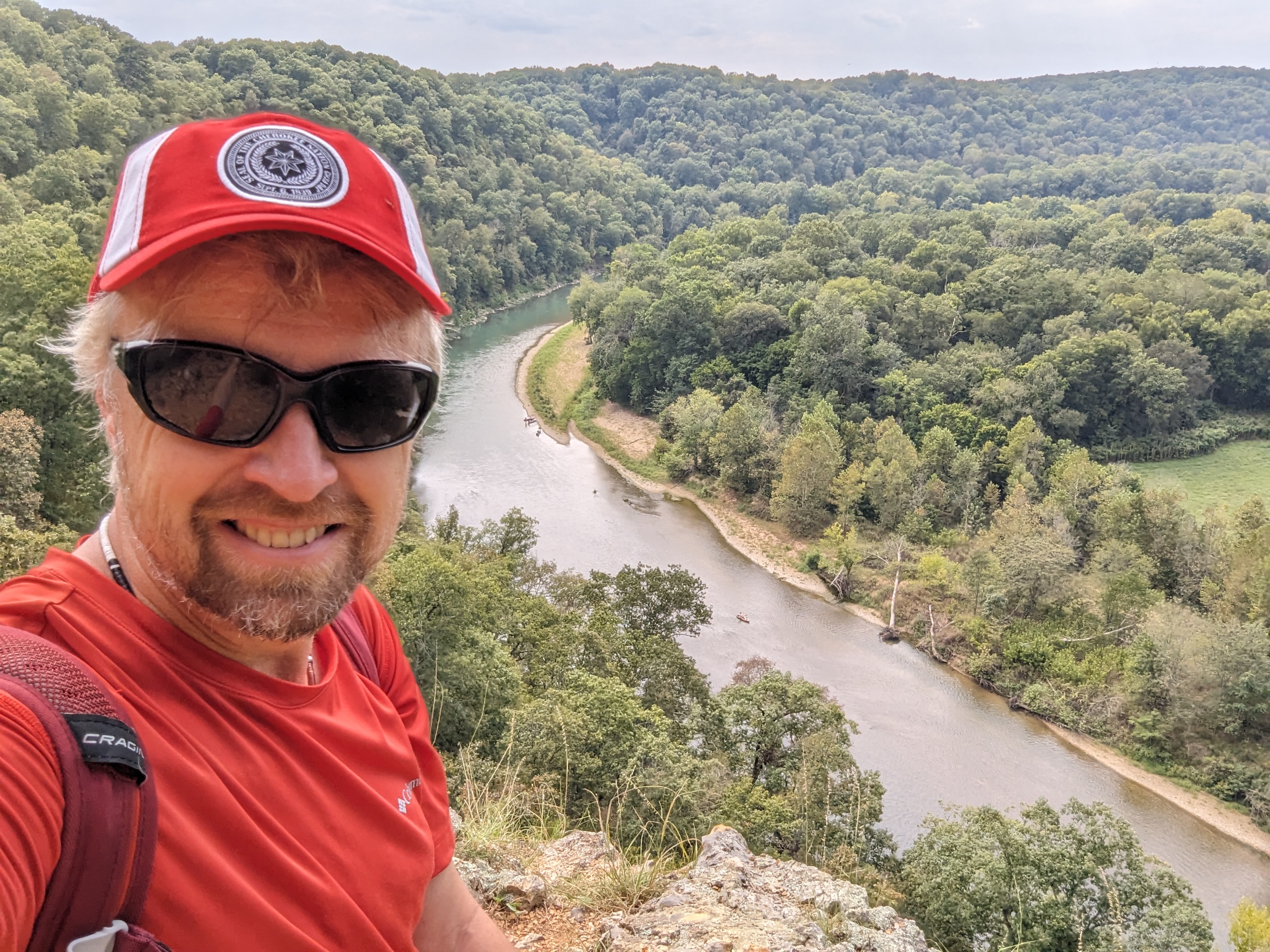
- Details
- By Sky Bristol
Guest Opinion. What does it mean to be an at large citizen of the Cherokee Nation? That’s something I went out to explore over a weekend in September. I drove through the countryside, explored the lakeshores, hiked the hills, fished the rivers, and met as many people as I could. One of my reasons for visiting was to meet Shawn Crittenden who is part of the task force forming up the Gadugi Corps - a new volunteer-oriented program designed to facilitate citizens doing good for and serving other citizens and our Nation.
I had some moments where I cried, alone in my truck driving down the back roads and byways. I cried tears of sadness and rage for the history of injustice, inequity, and hardships still evident. There was something about visiting the land, a place I don’t have the lived experience from, that touched my heart and soul. As I stood on the morning of my last day, fishing on the rocky shore of the Illinois River, the sun rising at my back burning through the fog, an eagle winged overhead hunting for her breakfast just like I was. Maybe there’s something real to all that spirituality stuff I’ve dismissed for so long.
I’m not sure exactly how I fit as a mostly white descendent of colonists on one side of my family with just enough Native heritage from my great-grandmother born on the reservation for the Tribe to enroll me and my siblings as citizens during the Mankiller administration. But I do feel embraced by the Cherokee Nation - our people and our government. I think there’s something profound about a civil society that takes great pains to welcome its lost children no matter how distant, seeking to make us a part of something larger than ourselves.
Much of my sadness in exploring the Cherokee Nation came from the “what ifs.” What if that whole thing with James Norman and the State of Sequoyah had gone the other way and the forces of white supremacism hadn’t prevailed? What would have become of Native people today if we’d had that kind of political base and rallying point? How might Native values in land stewardship influenced the trajectory of fossil fuels extraction and energy development? Native ancestors and the whole world were robbed of that opportunity.
Through all the injustice, attempted genocide, and continuing systemic marginalization, the Cherokee core values prevail. As always, the Cherokee Nation has faced the situation presented head on, rallied around our values, and is working to chart a new and different course into the future. Those values are evident in the millions of dollars the Nation is investing in its communities; both Tribal members and the descendents of land rush settlers. I could see it on the ground every place I visited, confirming what I’ve been reading about at a distance.
Those are the values that compel me to do everything I can to contribute. I’m excited for the vision Principal Chief Chuck Hoskin, Jr. has laid out for the Gadugi Corps and the ideas Shawn shared for connecting our at-large communities with on-reservation communities. With 460,000 citizens and powerful alliances with other Tribes and allied institutions, we can reclaim much that was stolen, ensuring health and prosperity for our people now and to the seventh generation.
Sky Bristol is a tribal citizen of the Cherokee Nation. This guest opinion was written in his personal capacity as a tribal citizen.
Help us defend tribal sovereignty.
At Native News Online, our mission is rooted in telling the stories that strengthen sovereignty and uplift Indigenous voices — not just at year’s end, but every single day.
Because of your generosity last year, we were able to keep our reporters on the ground in tribal communities, at national gatherings and in the halls of Congress — covering the issues that matter most to Indian Country: sovereignty, culture, education, health and economic opportunity.
That support sustained us through a tough year in 2025. Now, as we look to the year ahead, we need your help right now to ensure warrior journalism remains strong — reporting that defends tribal sovereignty, amplifies Native truth, and holds power accountable.
 The stakes couldn't be higher. Your support keeps Native voices heard, Native stories told and Native sovereignty defended.
The stakes couldn't be higher. Your support keeps Native voices heard, Native stories told and Native sovereignty defended.
Stand with Warrior Journalism today.
Levi Rickert (Potawatomi), Editor & Publisher

